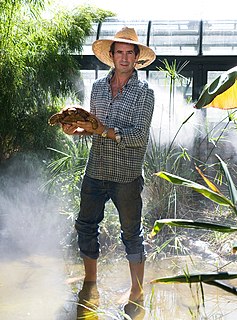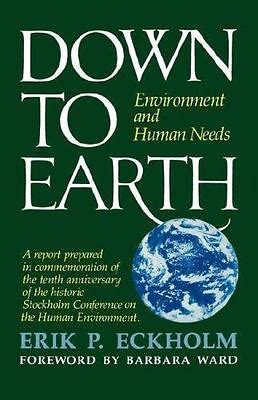A Quote by Hilary Kornblith
Rather, although belief may be adequate for explaining the behavior of individual animals - an animal which believes that p will behave no differently from an animal which knows that p - talk of knowledge is necessary once one begins to look at explaining the cognitive capacities of a species.
Related Quotes
Talk of belief in these animals is not some kind of anthropomorphism. We simply cannot explain the kinds of problem solving and behavioral sophistication some species exhibit without supposing that they have genuine beliefs. But once these ethologists finish making the case for animal belief, they quickly move to talk of animal knowledge as well. What I argue is that this is not a mere façon de parler.
Water is an individual, an animal, and is alive, remove the hydrogen and it is an animal and is alive; the remaining oxygen is also an individual, an animal, and is alive. Recapitulation: the two individuals combined, constitute a third individual-and yet each continues to be an individual....here was mute Nature explaining the sublime mystery of the Trinity so luminously that even the commonest understanding could comprehend it, whereas many a trained master of words had labored to do it with speech and failed.
Although homosexual behavior is very common in the animal world, it seems to be very uncommon that individual animals have a long-lasting predisposition to engage in such behavior to the exclusion of heterosexual activities. Thus, a homosexual orientation, if one can speak of such thing in animals, seems to be a rarity.
Ethologists thus have an interest in looking at these capacities for the reliable acquisition of belief, and it is not surprising that they have a name for the true beliefs which are the typical product of these reliable capacities. They call them items of knowledge. So I argue that talk of knowledge may thereby be seen to be embedded within a successful empirical theory.
I find it very annoying that so many animal advocates talk about the difficulty of being vegan. Many animal advocates are inclined to make the issue their suffering and not the animals' suffering, and I suppose that accounts for part of the reason that veganism is portrayed as such a "sacrifice." And many animal advocates are not vegans, or are "flexible vegans," which means that they do not observe veganism at all or not consistently, and emphasizing the supposed difficulty of veganism is part of justifying their own behavior.
I believe that the best way to create good living conditions for any animal, whether it's a captive animal living in a zoo, a farm animal or a pet, is to base animal welfare programs on the core emotion systems in the brain. My theory is that the environment animals live in should activate their positive emotions as much as possible, and not activate their negative emotions any more than necessary. If we get the animal's emotions rights, we will have fewer problem behaviors... All animals and people have the same core emotion systems in the brain.
The movements of nature are in a never ending circle. The animal species which has once been put into a train of motion, is still probably moving in that train. For if one link in nature's chain might be lost, another and another might be lost, till this whole system of things should evanish by piece-meal; a conclusion not warranted by the local disappearance of one or two species of animals, and opposed by the thousands and thousands of instances of the renovating power constantly exercised by nature for the reproduction of all her subjects, animal, vegetable, and mineral.
One animal or plant species may become extinct every hour. All species are doomed to extinction, but man through worldwide development/killing animals for food/profit/using toxic chemicals such as pesticides/industrial wastes, will accelerate the extinction of plants/animals and the result will be a more hostile environment for man.
As a society, we are typically deeply disassociated from animal cruelty, but more than ever, animal protection organizations are telling the backstory. People are being forced, to confront the realities. At the same time, we have an ever-growing understanding of the intelligence and emotional capacities of animals and an acceptance of the principle that animal cruelty is a moral problem.
I studied a lot of animal behavior and one of the things I find really interesting is the whole idea that animals are sensory based thinkers and I wrote about this in my book, Animals in Translation. That an animal's memory is not in words, they've got to be in pictures - it's very detailed so let's say the animal gets afraid of something - they'll get afraid of something that they're looking at or hearing, the moment the bad thing happens.
It must be stressed that there is nothing insulting about looking at people as animals. We are animals, after all. Homo sapiens is a species of primate, a biological phenomenon dominated by biological rules, like any other species. Human nature is no more than one particular kind of animal nature. Agreed, the human species is an extraordinary animal; but all other species are also extraordinary animals, each in their own way, and the scientific man-watcher can bring many fresh insights to the study of human affairs if he can retain this basic attitude of evolutionary humility.




























